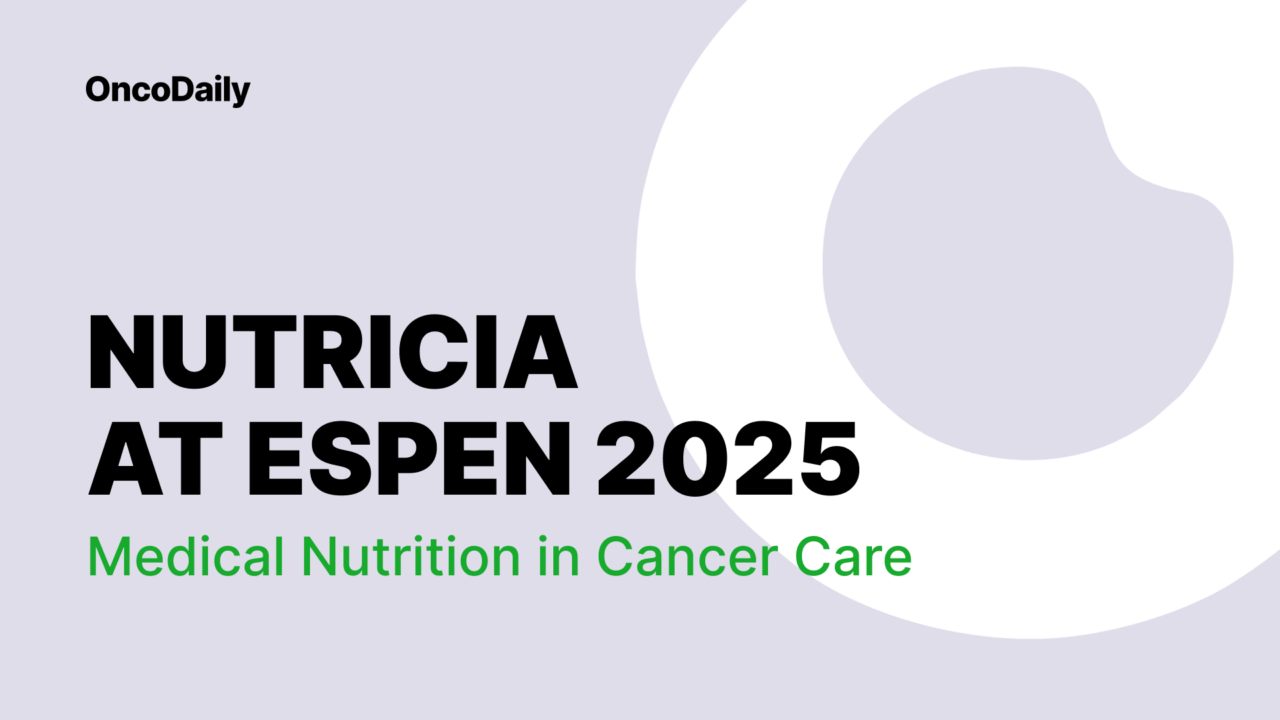Prague, Czech Republic– September 14, 2025
-
1 in 3 patients with cancer report their treatment to be delayed or interrupted due to weight loss.
-
Early initiation of medical nutrition is shown to support treatment outcomes, yet the vast majority of patients who need it never get it.
-
Nutricia joins the healthcare professional community at the ESPEN 2025 congress in a collaborative effort to advance cancer care.
At the 47th ESPEN Congress in Prague, Czech Republic, Nutricia joins the global healthcare community to spotlight the transformative potential of medical nutrition in cancer care.
One in three patients with cancer reports to experience treatment delays or interruptions due to weight loss. Despite established guidelines to address weight loss from medical societies, like the European Society for Clinical Nutrition and Metabolism (ESPEN) or the European Society For Medical Oncology (ESMO), implementation of nutritional screening and care remains inconsistent. This leaves many patients without access to essential nutritional interventions when they need it the most, leading to malnutrition.
Bridging the gap: Why nutrition matters in cancer care
Malnutrition, i.e., not getting enough nutrients to cover daily needs, is not merely a side effect of cancer. It is a driver of poorer treatment outcomes and quality of life, longer hospital stays, reduced treatment tolerance, and increased healthcare costs.
Clinical evidence shows that science-based medical nutrition interventions in cancer can help address malnutrition and maintain weight and muscle mass, improve quality of life, increase tolerance to treatment, reduce complications, and shorten hospital stays. In fact, 85% of patients report that medical nutrition supported them throughout treatment. Yet, only one in three patients who need it receive it, due to low understanding of the benefits of medical nutrition, lack of standardized protocols, and overstretched healthcare systems.
As Prof. Carla Prado stated at the Nutricia Satellite Symposium, which she chaired today at ESPEN in Prague:
“It’s up to all of us in clinical practice and medical research to drive better outcomes through solutions we know exist and can help. Multidisciplinary teams are crucial to ensuring adequate nutritional care, including early access to medical nutrition. There is an increasing number of hospitals around the world that have successfully implemented nutritional pathways to the benefit of thousands of patients with cancer and healthcare systems at large.”
– Dr. Carla Prado, University of Alberta, Canada
An evidence-based approach to better care
New research findings by Nutricia presented at ESPEN further build on the evidence of medical nutrition in supporting patient outcomes during cancer treatment, through a total of seven abstracts.
Among these, a large-scale, multi-center, multi-country clinical trial involved patients receiving chemo- and immunotherapy for colorectal and lung cancer. It showed that high-protein, omega-3-enriched oral nutritional supplements help meet patients’ nutritional needs effectively.
These studies are part of Nutricia’s robust evidence generation platform, dedicated to understanding and ultimately better meeting the nutritional needs of patients with cancer.
For example, patients with cancer require up to twice as much protein as healthy individuals, yet less than half meet their protein needs. With its Fortimel and Nutrison ranges, Nutricia supports patients who are malnourished due to their cancer, providing science-based medical nutrition that helps meet their nutritional needs, when normal food alone is not enough.
Katrien Van Laere, SVP Research and Innovation, Chief Medical and Scientific Officer at Danone comments:
“Medical nutrition should be an integral part of cancer care. We are committed to contributing to the future of cancer care, by conducting and supporting cutting edge clinical research across the globe and developing nutritional solutions offering a superior experience, ultimately with the aim to improve patient outcomes. As researchers and clinicians, we must continue to champion medical nutrition as an integral part of cancer care. Together, we can raise the standard of care.”
– Katrien Van Laere, SVP Research and Innovation, Chief Medical and Scientific Officer at Danone
About Nutricia
Building on 125 years of research and innovation, Nutricia develops medical nutrition that supports healthy growth, development, and life-changing health outcomes from early life to older age. Its portfolio addresses pre-term birth, faltering growth, food allergies, rare metabolic diseases, and age- or disease-related conditions such as frailty, cancer, and stroke.
As part of Danone, Nutricia contributes to the mission of bringing health through food to as many people as possible, inspiring healthier and more sustainable eating while creating measurable nutritional, social, and environmental impact.


